Camp Management, Mobile Camp Coordination and Camp Management, and Quick Impact Projects
Supporting displaced people through camp coordination and camp management services
Iraq
2018-2021
UNHCR
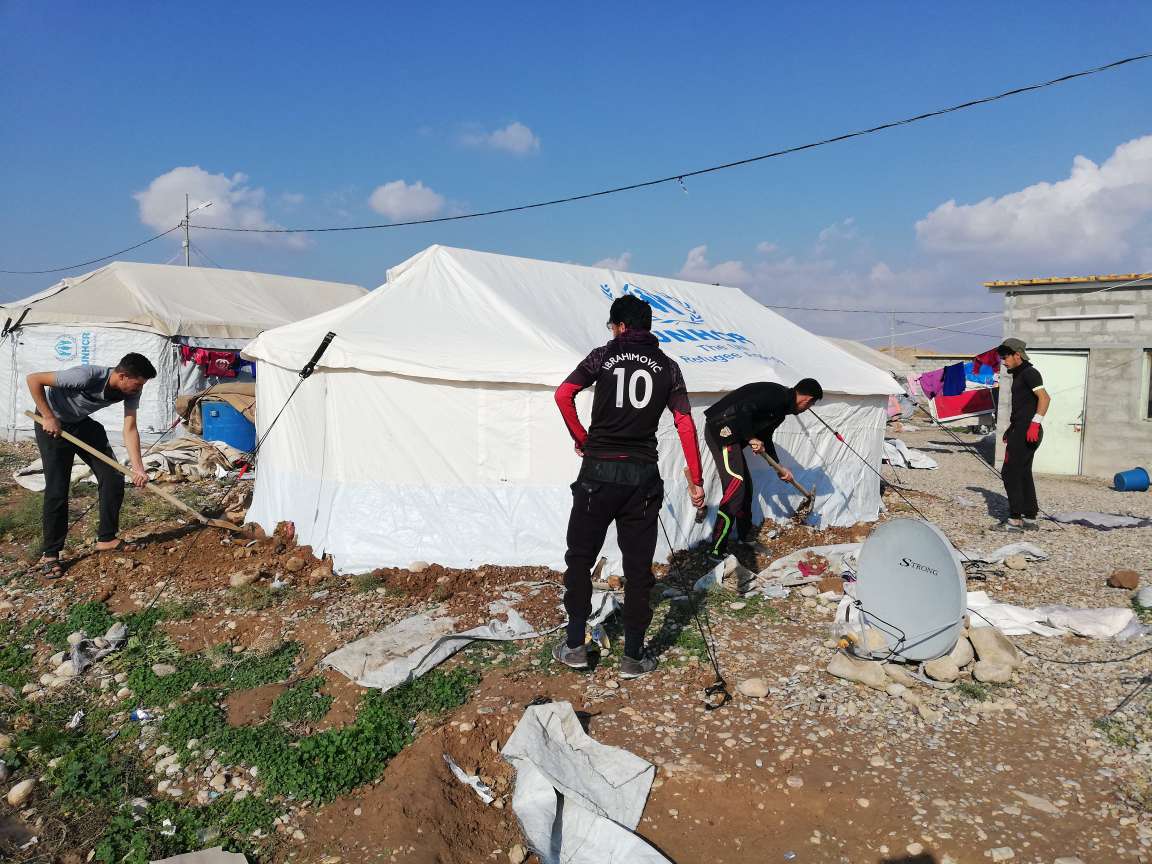
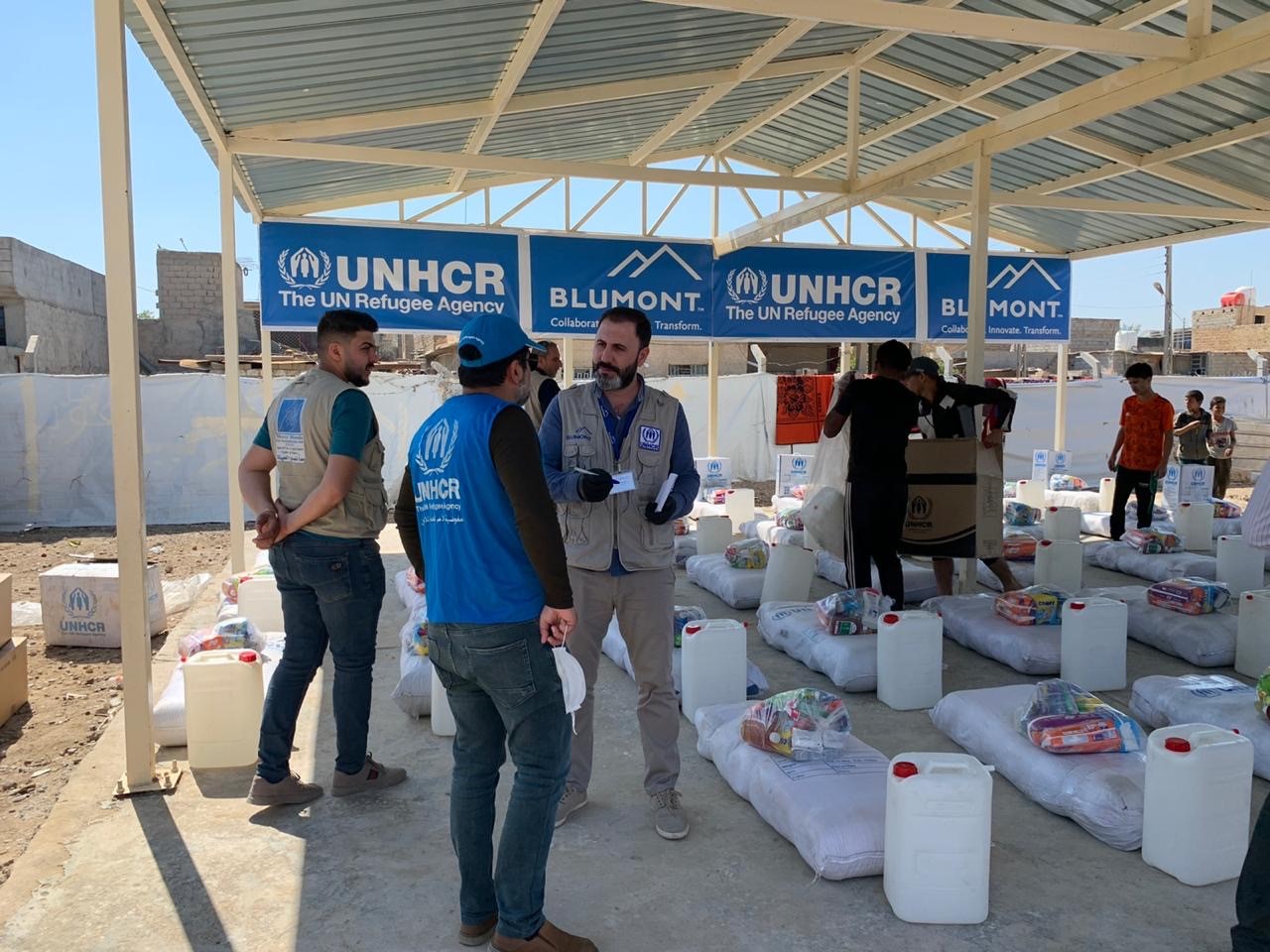
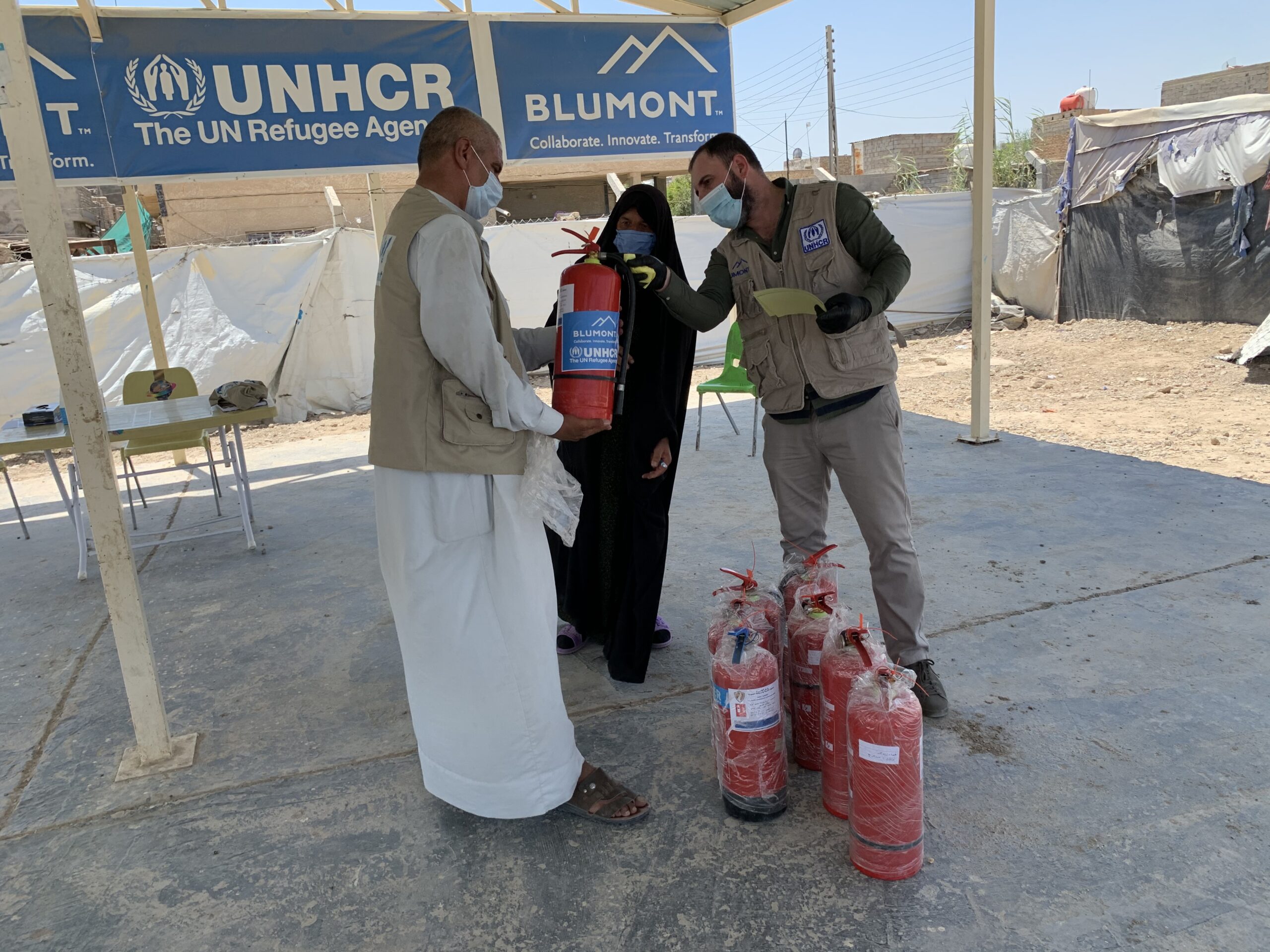
Improving Camp Maintenance in Displacement Camps
From 2018-2021, we led camp coordination and management (CCCM) efforts in eight displacement camps across Iraq. As CCCM leads, we maintained and rehabilitated camp facilities and addressed any gaps in resident services. Efforts included installing power and water lines, connecting tents to water and electrical supply, and rehabilitating camp fences and installing lights and security cameras to improve safety.
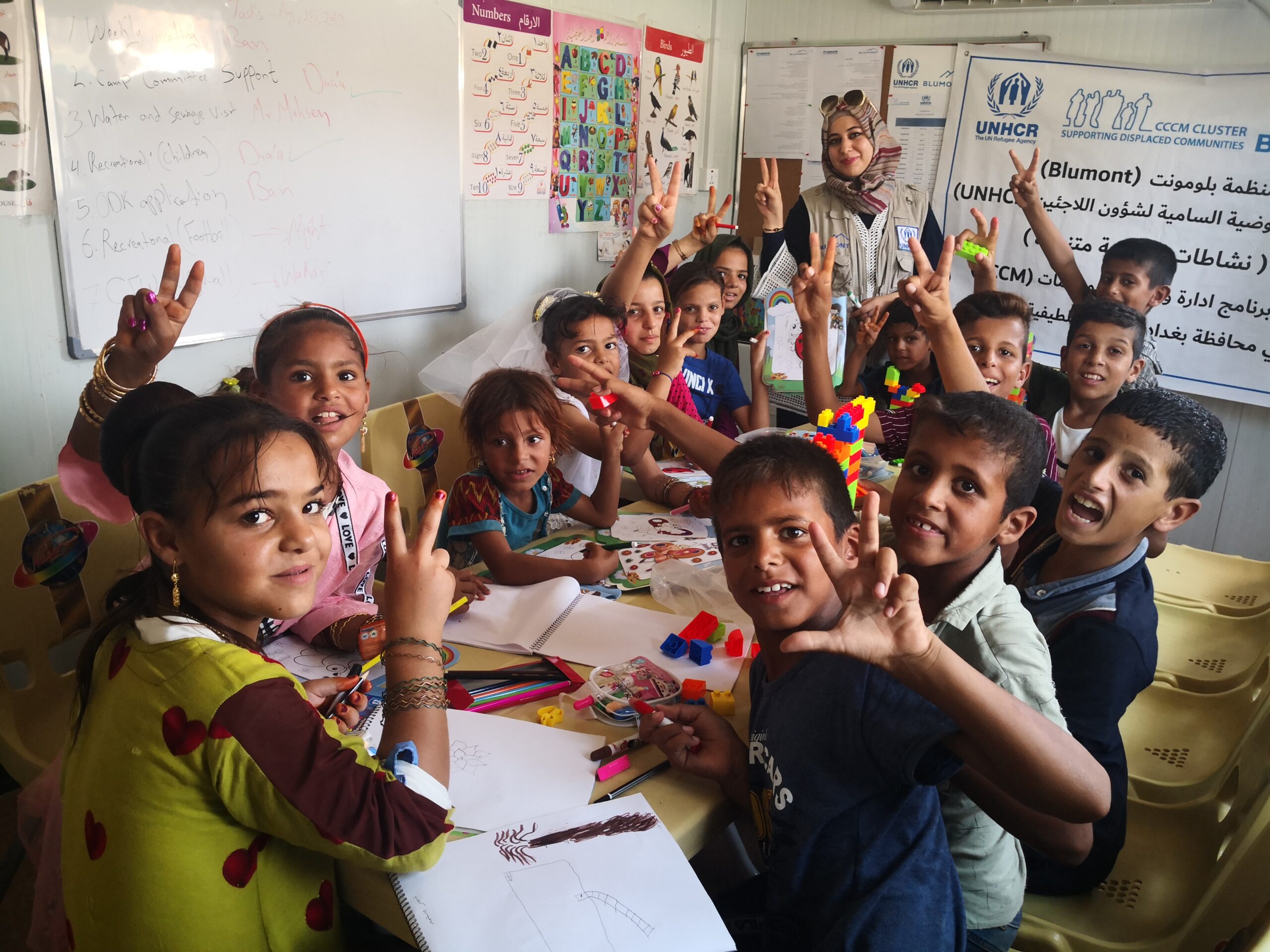
Engaging Community Members
We established camp committees to assess resident needs and interests. Teams conducted regular meetings with community leaders to discuss feedback and identify solutions to challenges. We led coordination of other service providers operating in the camps to address gaps and prevent duplication of efforts, creating a feedback loop that encouraged community engagement. Amidst COVID-19, our teams coordinated with the Iraqi health department and other NGOs to ensure that residents had access to information and proper hygiene.
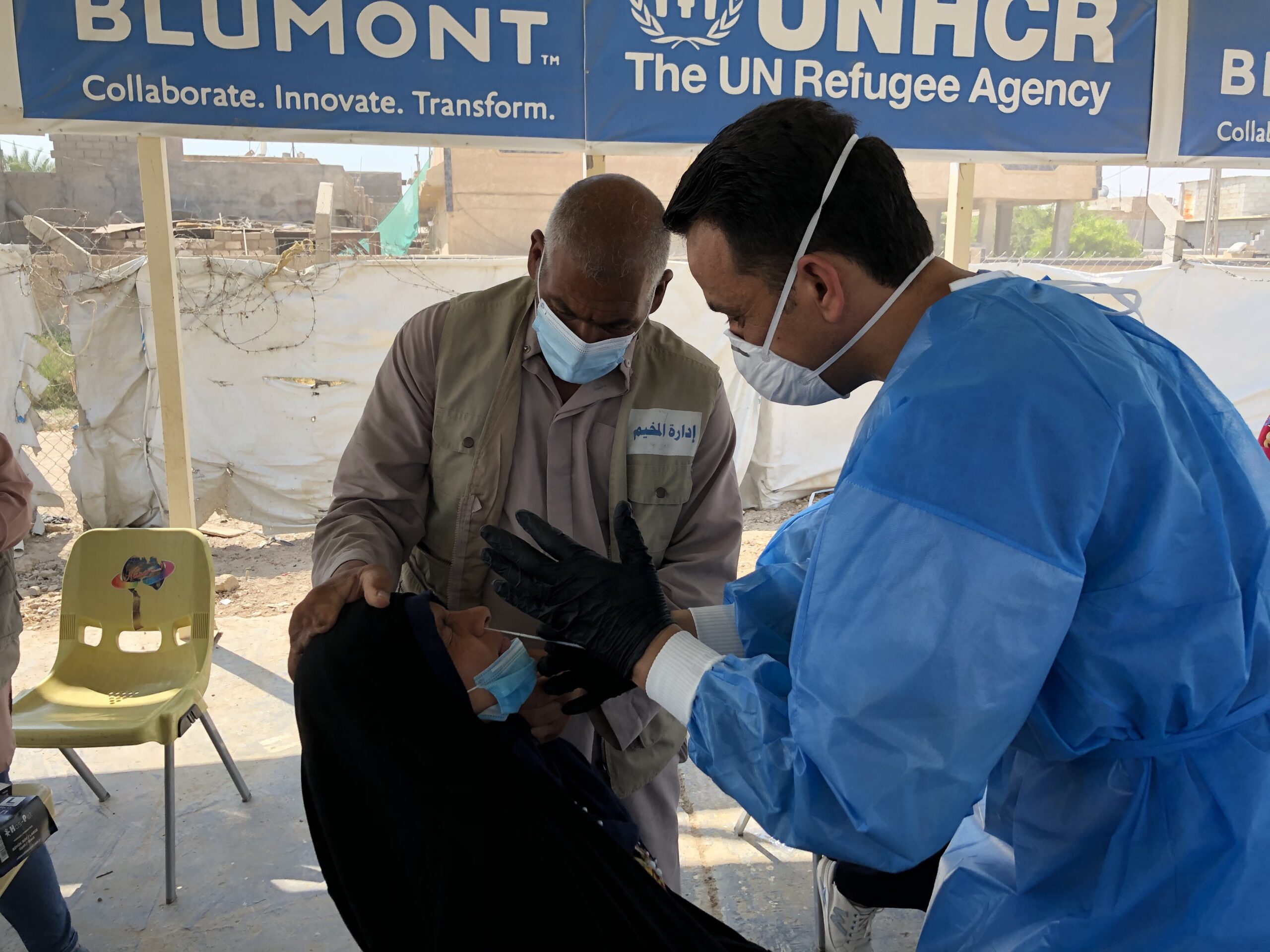
Activities were designed to provide opportunities for camp residents of differing ages and abilities to engage in the community. Cash for work programs involved residents in maintenance efforts, providing them with livelihood opportunities while building new skills and promoting community ownership. A computer lab was constructed, offering residents a place to work on resumes, build web literacy skills, or apply for jobs. Awareness campaigns were conducted to take on issues of concern to the community, including preventing sexual- and gender-based violence, improving fire safety, and encouraging conflict resolution.

Supporting Camp Closures and the Returnee Process
When the government of Iraq declared the closing of several camps in October 2020, we took the lead on the decommissioning through the Camp Management, Mobile Camp Coordination and Camp Management, and Quick Impact Projects (C2MQ2) and its follow-on program, Decommissioning of Laylan and Al Wand (DLAW). We coordinated logistics, including transportation for residents to return to their areas of origin. After all residents had departed, our teams began demolition efforts, disconnecting electricity, donating equipment to local ministries or other services providers, and leveling facilities.
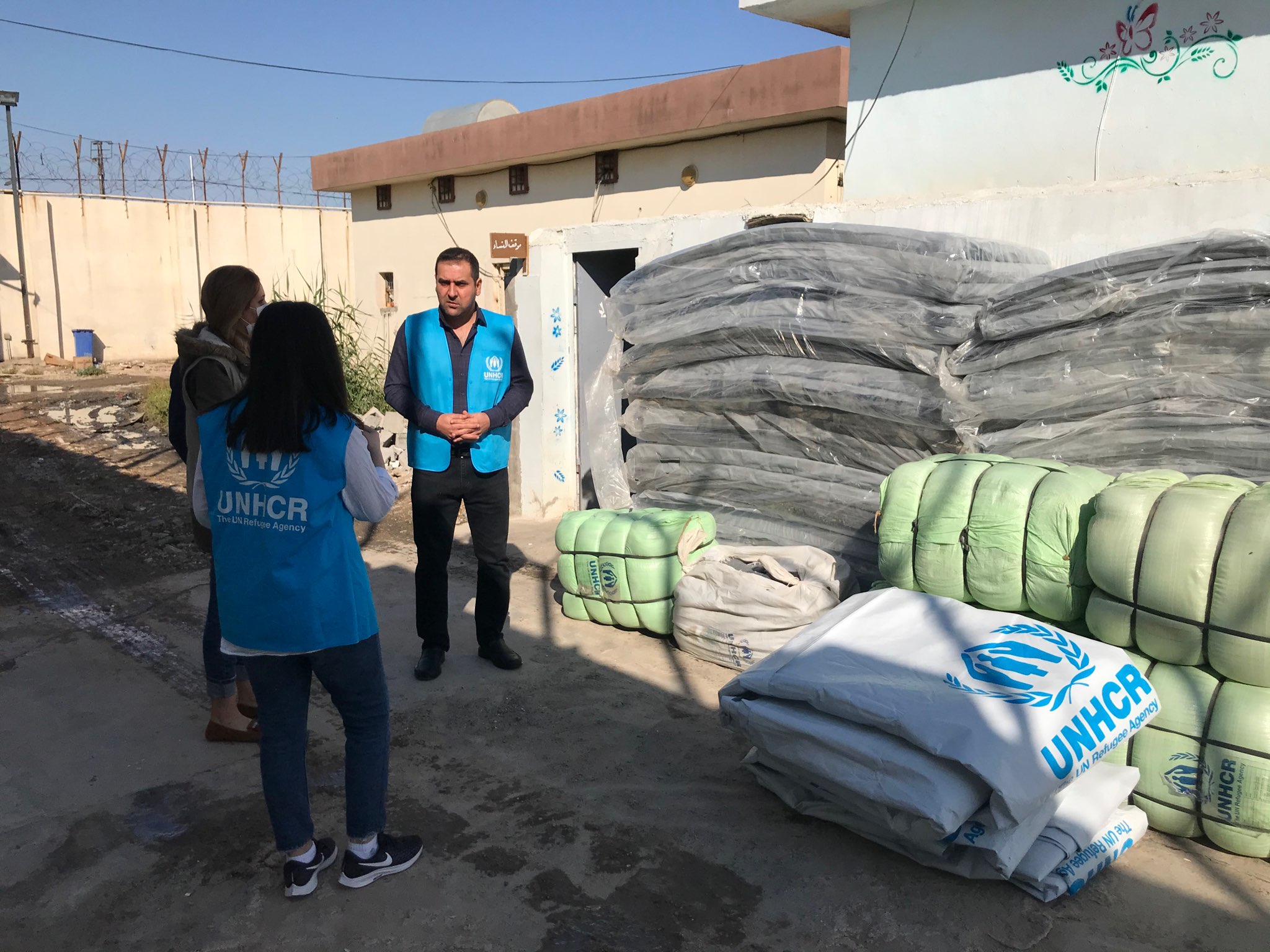
As people left camps, our team conducted assessments in returning communities to identify service gaps and evolving needs. We designed and implemented quick-impact projects to rehabilitate essential infrastructure necessary for return and resettlement, including rehabilitating homes, hospitals, and electrical and water infrastructure destroyed in the war. One water treatment plant serviced more than 50,000 people following its rehabilitation.



